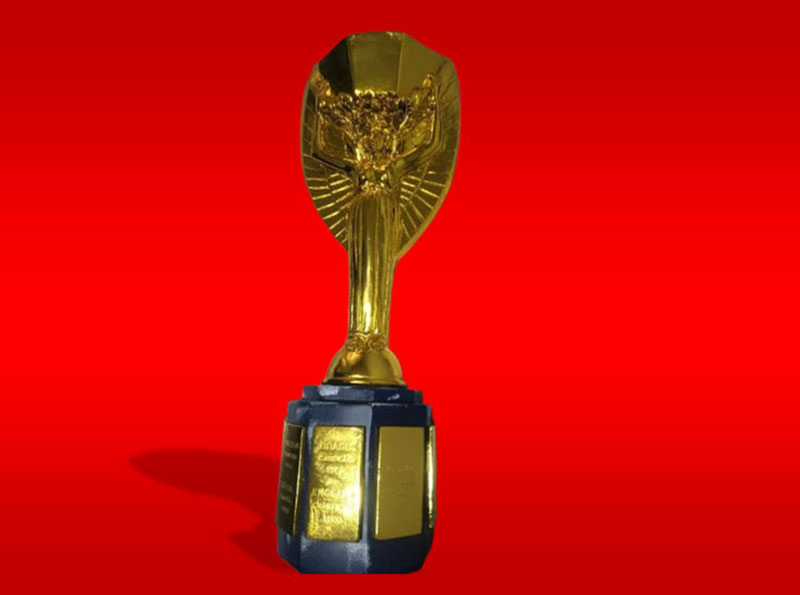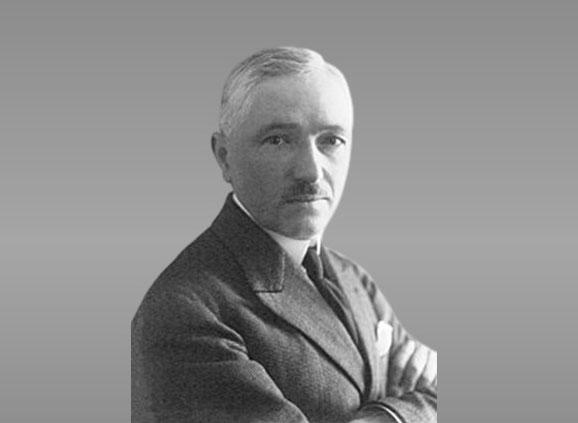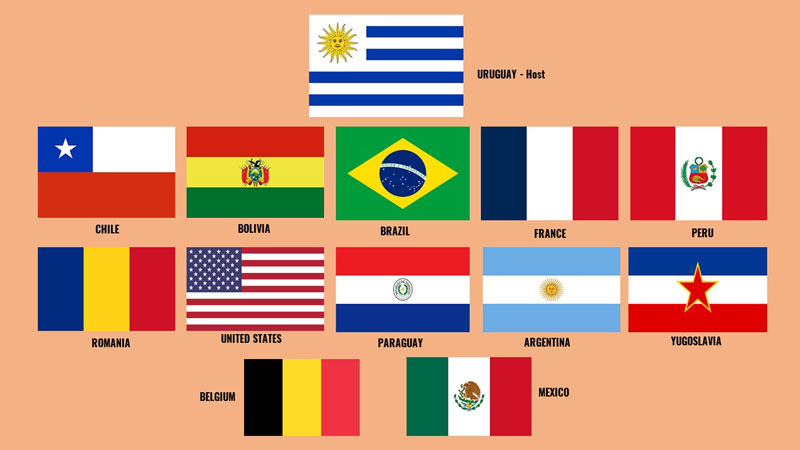The Beginning of the World’s Most Popular Sport
WHAT IS FIFA WORLD CUP?
The Federation of Internationale de Football Association, FIFA World Cup, also known as the World Cup, is a four-yearly international association football competition contested by the senior men’s national teams of the members of the Fédération Internationale de Football Association, FIFA, football’s global governing body.

How FIFA World Cup Was Born
HOW IT ALL STARTED
The first tournament ever staged by the Fédération Internationale de Football Association, FIFA, was the association football competition for the 1908 Olympics, held in London.
According to FIFA’s reliable reports, that event was more successful than the previous Olympic competitions before that.
As the Olympic event of those years continued to be contested only between amateur teams, Sir Johnstone Thomas Lipton, the tea tycoon who discovered the Lipton tea that we drink, decided to organize a soccer tournament in his name.
The event, which was christened the Sir Thomas Lipton Trophy tournament, was held in Turin, Italy, in 1909.
The Lipton football tournament was a championship between individual clubs (not national teams) from different nations, each one of which represented an entire nation.
The Sir Thomas Lipton Trophy football tournament is sometimes described as the First World Cup because it featured some of the most prestigious professional club sides from Italy, Germany and Switzerland, except that England refused to be associated with the competition and declined the offer to send a professional team.
With the refusal of England to send any of its team, Lipton invited West Auckland, an amateur side from County Durham, to represent England instead.
Interestingly West Auckland won the tournament, which it successfully defended two years later, in 1911.
FIFA, in 1914, agreed to recognise the Olympic soccer tournament as a “world football championship for amateurs”, and took responsibility for managing the event.
This, according to Wikipedia, paved the way for the world’s first intercontinental football competition at the 1920 Summer Olympics, which was contested by Egypt and 13 European teams, including Belgium, the eventual winner.
The first two open world championships of the 1924 and 1928 Olympic football tournaments were won by Uruguay.
With those successes recorded by FIFA, in the organisation of the football part of the Olympic games, its president, at that time, the French-born Jules Rimet, sold an idea to the confederations that make up FIFA, on the need to promote its own international football tournament, outside of the Olympics, and they bought Rimet’s idea.
Based on that conviction, FIFA’s congress met on May 28, 1928, in Amsterdam, in the Netherlands, and decided to stage a full-fledged world championship of its own.
DECISION ON HOST
The question of who would host the inaugural World Cup tournament was not a difficult one for FIFA to answer.
The hosting right was simply given to Uruguay for two main reasons.
One, for the obvious reason that it had just won the 1924 and 1928 editions of the official football world champions;
And two, because Uruguay was preparing to celebrate its hundred years of independence.
Uruguay was happy to be given the right to host that inaugural competition.
PARTICIPATION
Unlike now when all the national associations affiliated with FIFA take part in the exercise of qualifying for the World, no such qualification exercise was conducted for the 1930 World Cup.
Rather, every country affiliated with FIFA was duly invited to compete, and Argentina, Brazil, Bolivia, Chile, Mexico, Paraguay, Peru, along with the United States, promptly signified their interest to participate and they did.
Most European teams invited to that tournament were reluctant to attend for four different reasons.
One was the long distance from Europe to Uruguay in South America; two, the high cost of accessing South America from Europe by ship, the major means of transportation, at that time; three, the fear of the players and some of their officials losing their jobs for those number of days, July 13 to July 31, 1930, that the competition would take place; and four, mere arrogance.
Because of these reasons, no European entries were received before the February 28, 1930 deadline.
The people of Uruguay were not happy about that ugly development, which was about to mar their joy of hosting the World Cup and celebrating their independence.
In order to salvage the situation, the Uruguayan Football Association, UFA, sent a letter of invitation to The Football Association, even though the British Home Nations (England, Northern Ireland, Scotland and Wales) had resigned from FIFA at the time.
Unfortunately, that invitation was not honoured. It was rejected outrightly by the FA Committee on 18 November 1929.
Greenlight at the end of the tunnel
The condition did not improve, two months before the start of the tournament, until the President of FIFA, at that time, Jules Rimet, intervened and convinced Belgium, France, Romania and Yugoslavia to attend.

The Romanians agreed to participate following the intervention of their newly crowned King Carol II, who personally selected the Romanian squad, as well as negotiated with employers to ensure that the players would still have their jobs upon their return from the competition.
Jules Rimet convinced the French team to attend, but neither France’s star defender, Manuel Anatol nor the team’s regular coach, Gaston Barreau, could be persuaded to make the trip.
The Belgians, on the other hand, participated with the intervention of German-Belgian FIFA vice-president, Rodolphe Seeldrayers.
In total, 13 nations took part in the championship: seven from South America, four from Europe, and two from North America.

The 1930 first-ever World Cup took place wholly in the Uruguayan capital of Montevideo.
The event ended with an outpouring of joy as the whole of Uruguay took a public holiday to celebrate their championship and their victory over their neighbours, Argentina, whom they beat 4-2.
That was how the prestigious FIFA World Cup was born.
I will share with you all that happened at that event, in my future post, coming up on this blog.
Watch out for it!
EVOLUTION
With the success of the maiden edition of the World Cup in Uruguay in 1930, FIFA looked forward to hosting the second edition in Italy in 1934.
But unfortunately, a repetition of what happened in Uruguay in 1930 happened in the 1934 edition hosted by Italy; only a few South American teams were willing to travel to Europe for the event.
Uruguay, for example, boycotted the tournament as only four European teams accepted its invitation to the 1930 tournament, which it hosted.
A similar incident also happened in the 1938 edition hosted by France, as all the North and South American nations except Brazil and Cuba boycotted it.
Brazil was the only South American team to take part and compete in both the 1934 and the 1938 editions.
The fourth and the fifth editions of 1942 and 1946, which Germany and Brazil sought to host, were misses as they were cancelled due to the interruption of the Second World War, WWII, which lingered between 1939 and 1945.
Since that unexpected interruption, caused by WWII, and a few other hiccups, here and there, no other edition of the World Cup has been missed.
With the growing popularity and successes recorded by FIFA in the organisation of the World Cup, the FIFA World Cup has become the most prestigious association football tournament in the world, as well as the most widely viewed single sporting event in the world.
Its cumulative viewership of each edition is estimated to be above an average of 25 billion, more than that of any other sport in the world.
A total of 17 countries have hosted the World Cup since its inception in Uruguay in 1930.
While Brazil, France, Italy, Germany, and Mexico have each hosted twice, Uruguay, the first-ever host, Switzerland, Sweden, Chile, England, Argentina, Spain, the United States, Japan and South Korea (jointly), South Africa, and Russia have each hosted once.
Qatar, which will be hosting the 2022 edition, will bring the total number of hosts, since 1930, to 18.
The 2026 edition, which will be jointly hosted by Canada, the United States, and Mexico, will then raise the total of hosts to 21.
The 2026 event will give Mexico the distinction of being the first country to host games in three World Cups.
Soccer fans, all over the world, are, therefore, encouraged to support FIFA in its continued effort to host the World, among other soccer competitions, with a view to bringing joy and development to the football community and the entire world in general.
Long live FIFA! Long live World Cup! Long live soccer fans all over the world.
How FIFA World Cup Was Born. THE END.
PS: You can reach Soccer Fans Arena via its contact form.



